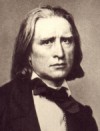 10/22/2011
- MUSIC LOVERS WORLDWIDE CELEBRATE 200th BIRTH ANNIVERSARY OF FERENC LISZT 10/22/2011
- MUSIC LOVERS WORLDWIDE CELEBRATE 200th BIRTH ANNIVERSARY OF FERENC LISZT
Ferenc (Franz) Liszt, composer, virtuoso pianist, Hungarian patriot, citizen of the world, was born 200 years ago, on October 22, 1811, in Doborjan, Hungary. His father, Adam, a musician and an employee of the Esterhazy family, was Hungarian, his mother was Austrian. Adam Liszt played the piano, violin, cello, and guitar; he knew Haydn, Hummel and Beethoven personally. At age six, young Ferenc began listening to his father's piano playing and showed interest in music. Adam began teaching him the piano at age seven, and Ferenc began composing at the age of eight. At age nine, he appeared at concerts in Sopron and Pozsony. After those concerts, a group of wealthy sponsors offered to finance Ferenc's musical education abroad.
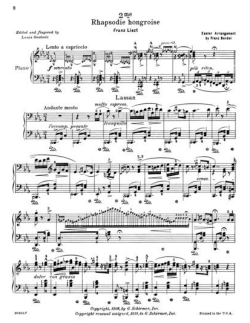 After attending a concert by Niccolo Paganini, Liszt became determined to become as After attending a concert by Niccolo Paganini, Liszt became determined to become as
great a virtuoso on the piano, as Paganini was on the violin. Not long after, Liszt became renowned throughout Europe for his virtuosic skill as a pianist. He was said by his contemporaries to have been the most technically advanced pianist of his age and perhaps the greatest pianist of all time.
As a composer, he left behind an extensive and diverse body of work, in which he influenced his forward-looking contemporaries and anticipated some 20th century ideas and trends. Some of his most notable contributions were the invention of the symphonic poem, and making radical departures in harmony.
Throughout his life, he presented himself as a Hungarian patriot; his Hungarian Rhapsodies popularized Hungarian music; he was instrumental in establishing and leading the Royal Academy of Music in Budapest.
Music lovers worldwide celebrate his birth anniversary. On October 22, there will be Liszt concerts in Paris, Bayreuth, Vienna, Budapest (at the Basilica). In the United States, Liszt concerts are performed in Washington, D.C., Boston, New Orleans, San Francisco, Sarasota, and other cities. Washington's classical music station, WETA, has devoted its October programming to Liszt's music.
As we remember him, and celebrate his life and contributions to music history, we remember this Liszt quotation: "Vezércsillagom mindig az legyen, hogy Magyarország egykor büszkén mutathasson rám." - Zoltan Bagdy
----
Additional Franz Liszt Programs
Washington, DC: Classical Music Program at the Hungarian Embassy for Fall 2011... The Embassy of Hungary has scheduled a rich classical music program for the fall of 2011. On October 28 a Hungarian-Danish piano-due will perform at the embassy, with a program of Liszt, Bartok, Brahms, Kuhlau, Gade and Saint-Saens. On november 1, Kossuth-Prize winning pianist, Gergely Boganyi will play Liszt and Chopin. On November 9, pianist Adam Gyorgy will perform, and on November 13, the Takacs Quartet will play Dvorak's "American" String Quartet. For more information, please see washington.kormany.hu/events
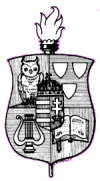 ---- ----
Sarasota, FL: 12/2 - Celebrating the Franz Liszt Bicentennial: The Kossuth Club Presents Piano Virtuoso
László Borbély: "From Liszt To Ligeti:
200 Years Of Hungarian Piano Music"
7:00pm, Friday, December 2 at the Glenridge Auditorium -
7333 Scotland Way, Sarasota, FL 34238
[read more]
Sarasota, FL: Thursday, October 27 at 4:30 PM in the Piano recital: Un Hommage à Liszt with
Péter Adrian Grauer
Selby Public Library (1331 First Street). Co-sponsored by the Hungarian Medical Association of America (HMAA) and the Kossuth Club.
The HMAA will host a post-concert reception and dinner to meet the artist from 7:00 PM. [read more]
Sarasota, FL: Sunday, November 6 at 2:30 PM in the Beneva Christian Church (4835 Beneva Road). Co-sponsored by the Hungarian Reformed Church and the Kossuth Club: Piano recital, "Un Hommage à Lisz" with
Péter Adrian Grauer.
Meet the artist reception in the Church Hall following the concert.
Suggested ticket donation $10 (includes reception). [read more]
[<< Back to All AHF Cultural News]
[<< Back to All AHF News]
| The King of the Piano, the World's First Rock Star
- Buy Franz Liszt music on AHF's Amazon Store!

- Listen to Franz Liszt compositions on [LastFM]
- Watch videos of various Liszt performances on [YouTube]
- Visit the [Franz Liszt Site]: A well-researched fan site containing commentary, biographical information, recommended recordings, a personal ode to the composer, a timeline, and more!
- Read the great article on [NPR Music]: "...the classical pianist, born 200 years ago today, was in many ways the first rock star of all time. In the mid-19th century, Liszt was tearing up the polite salons and concert halls of Europe with his virtuoso performances. Women would literally attack him: tear bits of his clothing, fight over broken piano strings and locks of his shoulder-length hair. Europe had never seen anything like it. It was a phenomenon the great German poet Heinrich Heine dubbed "Lisztomania."
"We hear about women throwing their clothes onto the stage and taking his cigar butts and placing them in their cleavages," says Stephen Hough, a world-renowned concert pianist.
Like many contemporary classical pianists, Hough is obsessed with Liszt — not only because he was really good, but also because he revolutionized the art of performance
- More about Franz Liszt courtesy of [IMDB]
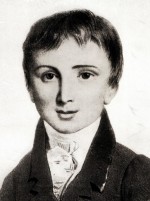 Franz Liszt, was born Ferenc Liszt on 22 October 1811, in Doborján, Hungary (now called Raiding, Burgenland, Austria after WWI and the Treaty of Trianon). The virtuoso pianist and composer, was the most famous concert superstar of the 19th century. A child prodigy, his father was Hungarian and his mother was Austrian. At age 6 he took music lessons from his father, cellist Adam Liszt, who worked at the Court of Count Esterhazy, the main sponsor of Liszt's education and career. Liszt continued his music studies in Vienna under Carl Czerny and Antonio Salieri. Franz Liszt, was born Ferenc Liszt on 22 October 1811, in Doborján, Hungary (now called Raiding, Burgenland, Austria after WWI and the Treaty of Trianon). The virtuoso pianist and composer, was the most famous concert superstar of the 19th century. A child prodigy, his father was Hungarian and his mother was Austrian. At age 6 he took music lessons from his father, cellist Adam Liszt, who worked at the Court of Count Esterhazy, the main sponsor of Liszt's education and career. Liszt continued his music studies in Vienna under Carl Czerny and Antonio Salieri.
In 1823, at the young age of 12, Liszt moved with his parents to Paris. There he enjoyed an early friendship with Frédéric Chopin, but later they became rivals. At that time young Liszt began his career of a travelling virtuoso. He was adulated all-over Europe, from Ireland to Russia. His concert performances included his own compositions, regarded by many as the most difficult piano music ever written. His elegant, worldly manners in combination with diabolic cynicism and his impressive stage presence and supernatural virtuosity gave cause for rumors, that he must have made a deal with the Devil. His "Mephisto Waltz" depicts the Devil playing a Paganini-style violin on the piano.
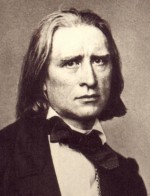 Franz Liszt became a friend of many important cultural figures of his time. He attended the Paris premiere of the "Symphonie Fantastique" by Hector Berlioz and the two composers became good friends. Liszt shared mutual respect with Mikhail Glinka. He also admired Aleksandr Borodin and promoted his first symphony for performances in Western Europe. Liszt was a friend of Richard Wagner, who was Liszt's son-in-law, until their differences led to cooler relationship in their later years. Liszt's influence on his fellow musicians was legendary. He made superb piano transcriptions of symphonies, operas and large orchestral works of other composers, such as Ludwig van Beethoven, Hector Berlioz, Wolfgang Amadeus Mozart and Richard Wagner. Operas and symphonies in Liszt's transcriptions became valuable repertoire of many pianists. Franz Liszt became a friend of many important cultural figures of his time. He attended the Paris premiere of the "Symphonie Fantastique" by Hector Berlioz and the two composers became good friends. Liszt shared mutual respect with Mikhail Glinka. He also admired Aleksandr Borodin and promoted his first symphony for performances in Western Europe. Liszt was a friend of Richard Wagner, who was Liszt's son-in-law, until their differences led to cooler relationship in their later years. Liszt's influence on his fellow musicians was legendary. He made superb piano transcriptions of symphonies, operas and large orchestral works of other composers, such as Ludwig van Beethoven, Hector Berlioz, Wolfgang Amadeus Mozart and Richard Wagner. Operas and symphonies in Liszt's transcriptions became valuable repertoire of many pianists.
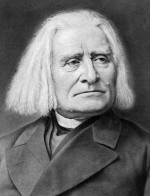 Liszt lived and travelled with the married Countess Marie D'Agoult for 12 years and they had three children. In 1847, in Russia, Liszt met the beautiful and wealthy Princess Carolyne Wittgenstein, who soon left her husband for Liszt. In 1848 he became the Director of Music at the Court of Weimar. There, living with Carolyne in her mansion, he composed and revised his most important music, including the "Dream of Love", dedicated to Carolyne. The Church did not allow Liszt to marry Carolyne and also did not allow Carolyne to divorce Wittgenstein, with whom she had a daughter. In 1861 Liszt settled in Rome where Carolyne bought a home and they tried to marry again, but the Church did not terminate Carolyne's marriage until her husband died in 1864. She then changed her mind and lived with unmarried Liszt, who was stuck in this painful situation until the end of his life. Under her influence, he became a religious man and in 1865 Pope admitted Liszt into Holy Orders and commissioned the church music. Since 1870s Liszt taught at the Budapest Conservatory and also participated with Wagner in several concert events in Bayreith. He spent his last years between Rome, Weimar, Budapest and Bayreuth, where he died in 1886 of pneumonia. Liszt lived and travelled with the married Countess Marie D'Agoult for 12 years and they had three children. In 1847, in Russia, Liszt met the beautiful and wealthy Princess Carolyne Wittgenstein, who soon left her husband for Liszt. In 1848 he became the Director of Music at the Court of Weimar. There, living with Carolyne in her mansion, he composed and revised his most important music, including the "Dream of Love", dedicated to Carolyne. The Church did not allow Liszt to marry Carolyne and also did not allow Carolyne to divorce Wittgenstein, with whom she had a daughter. In 1861 Liszt settled in Rome where Carolyne bought a home and they tried to marry again, but the Church did not terminate Carolyne's marriage until her husband died in 1864. She then changed her mind and lived with unmarried Liszt, who was stuck in this painful situation until the end of his life. Under her influence, he became a religious man and in 1865 Pope admitted Liszt into Holy Orders and commissioned the church music. Since 1870s Liszt taught at the Budapest Conservatory and also participated with Wagner in several concert events in Bayreith. He spent his last years between Rome, Weimar, Budapest and Bayreuth, where he died in 1886 of pneumonia.
IMDb Mini Biography By: Steve Shelokhonov with edits by Bryan Dawson
Trivia
He eloped to Switzerland with Countess Marie d'Agoult. Their idealistic relationship eventually disintegrated in 1844. Together, Liszt and d'Agoult had three children: daughters Blandine (born 1835) and Cosima (born 1837), and son Daniel (born 1839). Daniel died in 1859 at the tender age of 21. Liszt would write "Two Episodes from Lenau's Faust" and "Les Morts" to honour his memory. In 1862, his daughter Blandine died in childbirth. His other daughter, Cosima, later left her husband to be with composer Richard Wagner, to whom she bore daughters Isolde in 1865 and Eva in 1867 and son Siegfried in 1869 before they finally married in 1870.
He was the subject of the 1960 biopic Song Without End (1960) starring Dirk Bogarde.
His music is featured in hundreds of Hollywood movies including "Eyes Wide Shut," Oscar Winning "Shine," "The Green Hornet," and "The Majestic." His music is also featured in video games, such as the blockbuster "Gran Turismo 4." [read more]
We are all volunteer and need your support! Join online!

|



